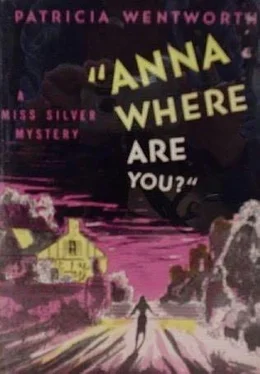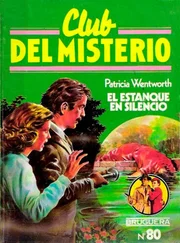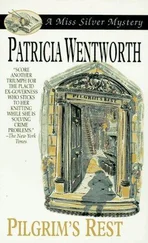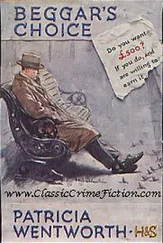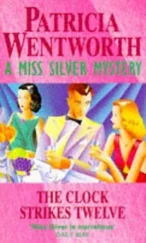“They don’t! And at any rate we don’t have all those buttons and things!” And then, “Go away, Peter!”
He retreated to the door, set his back against it, and said,
“Not on your life!”
“Peter!”
“It’s not the slightest bit of good. I’ve been coming up here three times a day, and you won’t see me. You won’t see me! I never heard such a pack of damned nonsense in my life! I don’t know how much longer you expected me to go on standing for it, but I’m through! You are seeing me now, and you are going to go on seeing me until we’ve had this out!”
When Thomasina’s face came through the opening of the grey dress, Peter had found himself suddenly angry. She looked as if she had been out all night in the rain-and cold January rain at that. He was now a good deal braced by the fact that her natural colour had returned. Her eyes did not exactly sparkle, but they looked as if they might be going to do so at any moment. A secret and horrid fear that something irrevocable had happened between them, he didn’t quite know how or why, just faded out. If this was going to be a row, he was all set for it. They always had had rows, and he supposed they always would. And they didn’t matter a bit, because under all the sparring there was something enduring and strong-very, very strong. They clashed because they were both proud, and independent, and honest, and because they knew it didn’t really matter. A bout between them was not a duel, it was a fencing-match. At any moment they could drop their points and go off hand in hand. But this time-this time he had been afraid. Now he wasn’t afraid any more. He stood with his back to the door and said,
“Tamsine, don’t be a fool!”
All this time he hadn’t called her Tamsine once-all this horrible time at Deep End. It did things to her, and she was betrayed. The proud anger in her melted, and when Peter stopped propping the door and came over and took her in his arms she could do nothing but cry. And, like everything else she did, Thomasina didn’t cry by halves.
Miss Gwyneth, who had been standing outside the door for some time, was alarmed to the point of opening it. Not wide of course, but just far enough to make sure that nothing dreadful was happening. She saw Thomasina weeping vehemently on Mr. Peter Brandon’s shoulder, and she heard her say between sobs, “Oh, Peter, I’m so unhappy!” To which Mr. Brandon replied, “Darling, what you want is a hanky. Here, take a good blow and you’ll feel a lot better.” This reassured her so much that she closed the door and withdrew, followed by Miss Elaine, who had been looking over her shoulder.
When they were at a safe distance she said in the tone of one who admires some unaccountable phenomenon,
“Men always do seem to have a handkerchief. I suppose it is all those pockets!”
Miss Elaine turned an indignant face upon her.
“How can you be so unromantic, Gwyneth? Handkerchiefs indeed, when you ought to have been thinking of orange blossom ! Oh, I do hope they will ask us to the wedding!”

Born in Mussoorie, India, in 1878, Patricia Wentworth was the daughter of an English general. Educated in England, she returned to India, where she began to write and was first published. She married, but in 1906 was left a widow with four children, and returned again to England where she resumed her writing, this time to earn a living for herself and her family. She married again in 1920 and lived in Surrey until her death in 1961.
Miss Wentworth’s early works were mainly historical fiction, and her first mystery, published in 1923, was The Astonishing Adventure of Jane Smith. In 1928 she wrote The Case Is Closed and gave birth to her most enduring creation, Miss Maud Silver.
***

